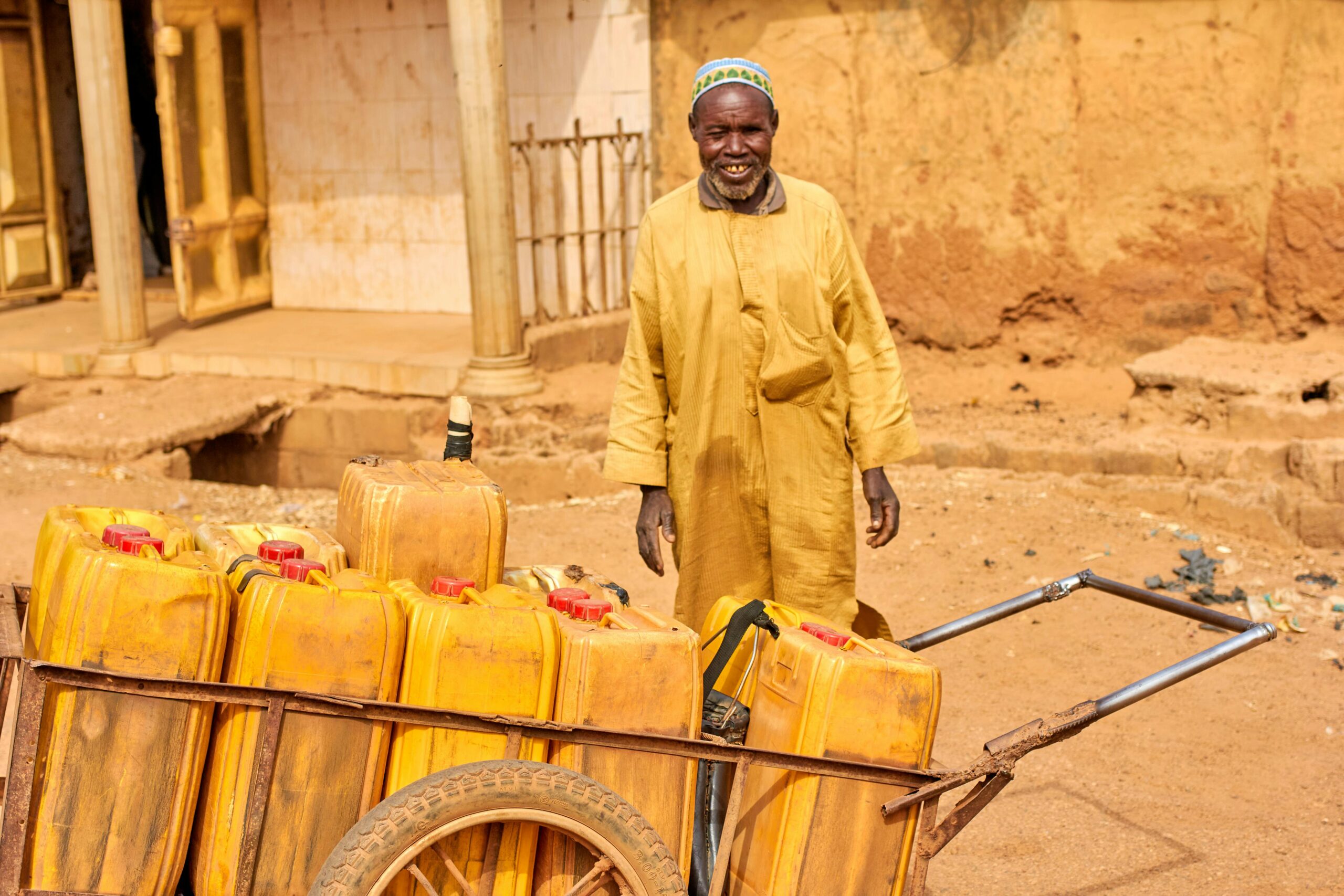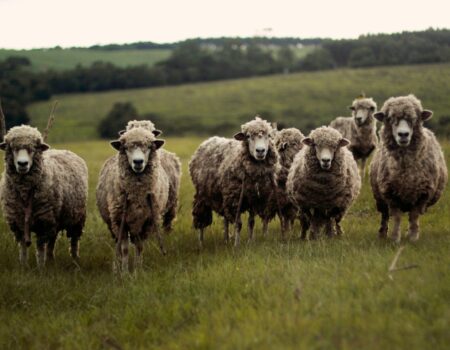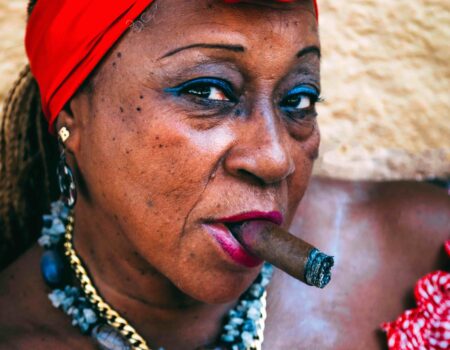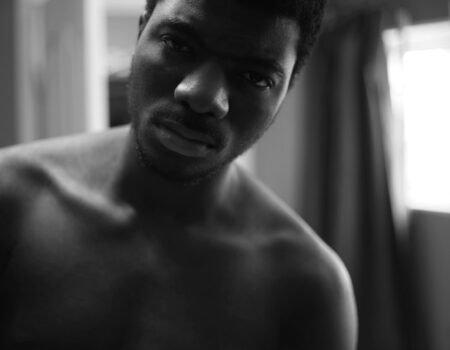With the way I sat still in the passenger’s seat of the grey Toyota Corolla, the driver must have been tempted to tap me to say, “You didn’t forget you ordered a ride. Did you? This is not your car. Get down! I have another client to pick up.” But he didn’t say that. He was patient with me, and he had been since he picked me up from Miango and drove me to Duala, knowing when and when not to make conversation. Looking back now, I hope I gave him 5-stars. He was looking through the window now, checking to confirm if we were indeed at the right place. We were. I knew we were but I sat still, disbelieving that this was happening, wishing a miracle would happen and I wouldn’t have to come down here, and live here.
No miracle happened. I came out of the ride, dragged my box along, waved the driver goodbye and began my sojourn into the building I would live in for the next ten months. I was to serve (as a fulfillment of my duty as a Nigerian youth; NYSC) in a school in Filin Sukuwa, Jos, Plateau State Nigeria and this place, the lodge was recommended to me by the man who was to be my employer. The owner of the school. The lodge was just a bike ride away from the school. That was the highlight of the pitch he had prepared to convince me.
The moment I got into my room, I called my mother to complain about the open drainage with greenish filth right behind the window and how the stench oozing from it was infuriating me. I had not been informed. There was worse to come.
On the street where I lived, poverty was tangible. You could reach out and touch it, maybe even play tinko-tinko with it. While I did not reach out to touch it, droplets from the sky reached out to touch me from the leaking roof every time it rained. It was beyond frustrating. The ceiling was more or less a sieve and we woke up to flooded rooms and soaked beds every morning when it rained. When I tell you I loathed this place. Gosh! And then when I asked to use the toilet for the very first time and I was directed to what seemed like a dark shit cave, it took sheer force of will to not grab my box with my towel still tied to my chest and flee. Away. Far away from whatever this place was.
You see, I was not used to rural living. I was not used to being violently woken up by drops of rain descending from the ceiling onto my face; to coming back from teaching kids with raging hormones and vocal cords to mop away all the water that had gathered on the floor of my room while away. Indeed, I was familiar with fetching well water from my experience at an undergraduate public hostel, but it was not the primary source of water; it was the alternative. Here, the well was all we had. Except when the rainy season was over and the bottom of the well stayed dry as a rock. Then mai ruwas (water peddlers) were our alternative. I was used to shelter, to tap water, to looking out the window and not seeing a canal. Yet I stayed, I adapted.
In staying, my frustration soon became wonder. My anger soon became empathy. Shock soon became astonishment. I would often listen to my roommate sister Eno rant on and on about how at the house next to us, just after the canal, they couldn’t afford to fix their house but kept birthing more children into poverty. The house with every day that passed became less of a home and more of a structure hanging on to the failing strength of a number of bricks and wood. It was almost crumbling. Sister Eno would often rant about how it just made no sense that they could not improve their standard of living, yet they were birthing more mouths to feed. She would rant about this so passionately and so humorously and we would laugh at the humour but hanging over our heads would remain the question. Why are they so averse to family planning? More importantly, how must it feel to live like this? Can they even tell that there’s some other way to live; better way to live. Living in Duala made me ponder. And as I write this, I recall a show on Youtube I once watched where people were made to argue for or against the statement: “Is poverty a choice?”. I think it’s ridiculous. The question. And I remember listening to one of the speakers say that poverty was indeed a choice and if people worked just hard enough, they would escape poverty. I still have a dislike for that statement and the person who made it because I think it’s downright insensitive. I think people can be blinded so much by privilege they think because others cannot or have not attained a level of success, it must mean they are lazy or just not doing enough…
Living in Duala started to become bearable when I became friends with the provisions store keeper and the gas man; I loathed Duala less when I found suitable selfie and video making spots at the uncompleted space that lay right above the lodge; I started frowning less when I had to teach English language to neighbourhood children and teenagers as a volunteer. I started taking evening walks, basking in the cool breeze and the beauty of the picturesque landscape.
The provisions store keeper Uwaisu was good looking. Super good looking. He wore a smile that could make your heart leap in excitement. On the day I took a long walk down Duala street (because my devices were dead), it was at Uwaisu’s shop I ended up sitting because I had walked back and forth and still felt uneasy. We talked about life, dreams, teaching, business and football. He explained how business required immense patience and I told him about how my students in school always managed to frustrate yet intrigue me. He told me about his time as a teacher and how he doubled as a football coach; my eyes widened in amazement when he mentioned the awards they won, the cups they took home. His eyes brimmed with pride as he showed me pictures from moments on the field. He was proud of his boys. He missed his time as a teacher and football coach. Yet, here he was with a flourishing business, content and happy. We talked and laughed and “hmmed” and “ahhed” at least until my roommate came to drag me away. My lodge mates always joked that he was my husband. I usually laughed off their dramatic exaggerations.
Sister Enobong was one of my lodge mates. She was probably the most fascinating person I met in Jos. She was Calabar, and Muslim and Yoruba-speaking. A combination you so rarely find. She was vegetarian because she was born into a family that practiced a religion that required them to be vegetarians so while the rest of us ate meat and fish and milk, Sister Eno could not stomach it. Literally. Haha! She was no longer actively practicing that religion as she had converted to Islam but old habits die hard they say. She had never not been a vegetarian so she didn’t know how to stop being a vegetarian. Sister Eno was economical. Sometimes to a fault. And in her trying to be economical about everything, she couldn’t fathom the point of eating out or spending money on relatively luxurious meals like pizza so she would humorously narrate to the other lodge mates how when I first arrived at the lodge, all I ate was bread, cornflakes and take-outs. She was dramatic and so were her narrations. I would laugh and laugh but in further conversation with her, I will learn about the hurt she carries like weight upon her shoulders, about her past and about a future she holds so dear. She would say to me: “Sister Rukky, this is not the life I envisioned for myself” and I would say to her not sure if I believe it myself, “Soon, soon. It’ll get better”. This Sister Eno, who made my hair look regal in plaited long, tiny braids.
Sister Eno was a hardworker, working three jobs in a day to save up enough for her dreams. She was also kind. So kind it made people take advantage of her. We shared a peculiar music taste, Sister Eno and I, and contrarian beliefs too and pain. Both of us suffered dysmenorrhea so I introduced her to ginger tea. This tea she would go on to make for me when I lay in bed, writhing in pain and couldn’t get up to make it myself. Sister Eno who lit up the room with her unhinged jokes and hoarse, belly deep laughter. Then there was Sister Aisha who I watched movies with, Sister Seyidah who called me “sister Rukky” in a sing-song way, Sister Zayidat who called me “A-Rukky” in an even more sing-song way, Aisha who had a unique hiccupy way of laughing and who was almost always misunderstood, sister Marufah who acted all tough like a fighter but had the funniest jokes and sweetest smile, sister Seidat who helped me repurpose my hijab into a dress, sister Barakah who also worked for the man who owned the school I worked at and had gist for days.
Living in Duala made me think deeply about how as humans, we are almost oblivious to the lives of others. We go about our days stuck in the bubble of our own lives, burdened by the troubles of our own lives, filled by the joys of our own lives and so we do not deliberately take time to observe what daily living is like for others, what makes them tick, what burdens they carry, what beliefs shape them, what memories light them up. There, in Duala, I embraced slow living. Taking everything in and simply just watching it or intensely savouring it. Duala. No, Jos as a whole was like no other place I have ever lived. The weather was colder, the environment different, the people dressed differently, spoke a different language. It was just not what I was used to. Yet, I believe that this is probably what we need as humans. To embrace change, to embrace difference, to see unfamiliar places, to live in new places, with new people and experience what other people’s lives feel like.
Duala living taught me to live more lives than one.
Rukayat Ogunlana
Rukayat Ogunlana is a Nigerian Creative Writer and Spoken word Poet who writes on everything that makes up the human experience one piece at a time. She has works in Kalahari Review, Brittle Paper, The Poetry Journal, Punocracy and others... She also made the longlist for Punocracy's Prize for Satire in 2022. You can find her on Instagram or X @simply_rukky.





